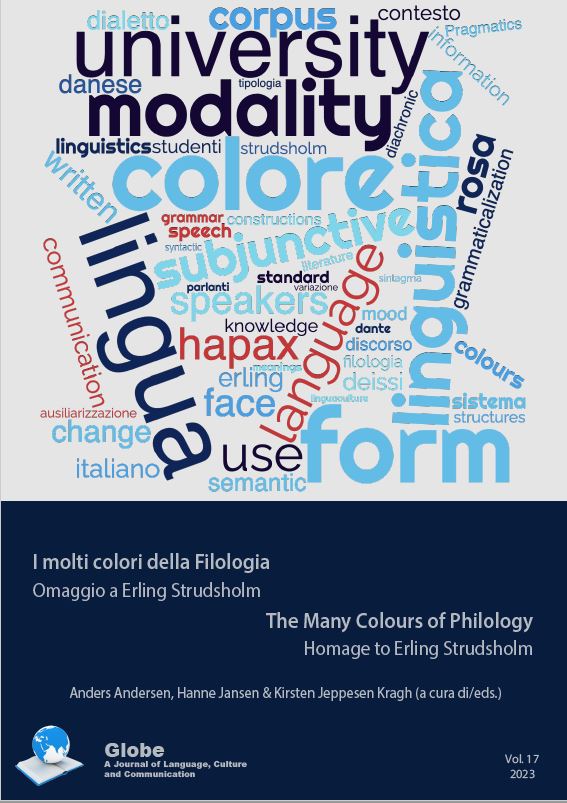Divertirsi con la lingua: Il Doge di Aldo Palazzeschi
DOI:
https://doi.org/10.54337/ojs.globe.v17i.8209Abstract
In 1967 Aldo Palazzeschi (1885-1974), at the venerable age of 82, published this novel (however not the last)
in which critics wanted to see a return to the lazzi or experimentalism of the young futurist. The plot is soon
stated: "without characters and without direct dialogue, it is the novel of a teeming and charlatan mass" (Tellini)
who waits for a few days for the appearance of a Doge, who will never appear. Obviously, therefore, the setting
in Venice is teeming with tourists, famous and less famous, accompanied by a flood of suitcases, pretentious
in their ignorance when they talk about Dante (Alighieri!), famous polar explorer. A novel in which "a crowd
is crowded or a mass is crowded", in Arbasino's words. The focus of this contribution, however, is on the
linguistic expression of the novel. The reader is immediately struck and dazed by the long sections (of 17 lines
or more) and the risky syntactic structure, rhetorically constructed ("Mentre gli intransigenti … Altri invece, di
parer contrario sempre"). The criticism was rather severe in evaluating all this, speaking of 'lava flow' (Marco
Marchi), 'lutulent verbal river' (Tellini), 'abnormal syntactic regime' (De Maria). Here we propose, on the one
hand, to verify the suggestion of De Maria: "that Palazzeschi intends to parody the 'periodoni', canonical of
our literature, of the History of Italy of Guicciardini", associating examples from other writers of the Italian
sixteenth century. On the other hand, it is to rediscover this Palazzeschian passion for syntax in works of
previous periods of his literary production, where language is fully an opportunity to have fun. As I have tried
to demonstrate elsewhere, in fact, the tripartition in watertight bulkheads between an avant-garde period, a
subsequent return to order and therefore a resumption of the experimentalist vein, risks leading one astray. We
have here, returning to what Luciano De Maria said well: "Mass society interpreted, therefore, as a society of
universal gossip. The Venetian 'ciacola' as a symbol of a world parlerie perpetuated by newspapers, radio,
television". What a topicality! We can only imagine what Palazzeschi would have written in our years of the
triumph of bloggers and mobile phones!
Downloads
Published
Issue
Section
License
Articles published in Globe: A Journal of Language, Culture and Communication are following the license Creative Commons Attribution-NonCommercial-NoDerivs 3.0 Unported (CC BY-NC-ND 3.0). Authors retain copyright and grant the journal right of first publication with the work simultaneously licensed under a Creative Commons Attribution License: Attribution - NonCommercial - NoDerivs (by-nc-nd). Further information about Creative Commons


